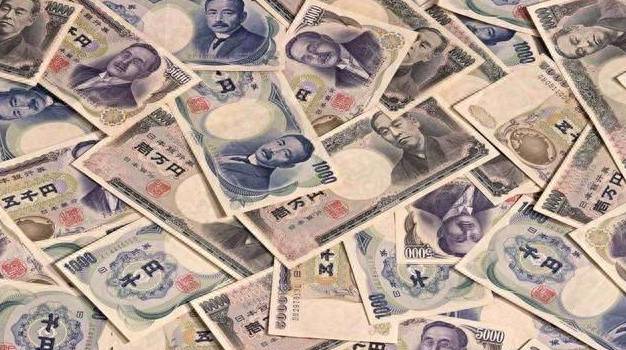According to several analysts, the Japanese yen surged nearly 3% on Thursday due to suspected intervention by the Japanese government, and there was a suspected intervention again on Friday, which could alleviate the pressure on the Bank of Japan to raise interest rates at the end of this month.
On Thursday, the US dollar to yen exchange rate once surged 3% to 157.40, but then gave back some of the gains. The Bank of Japan's daily operation data released on Friday showed that the Bank of Japan spent 3.37-3.57 trillion yen (21.18-22 billion US dollars) to buy yen on Thursday, less than three months after the last intervention. On Friday, the US dollar to yen rate surged more than 0.8% to 157.49 again, and the Japanese government is "suspected" of intervening in the foreign exchange market again on Friday. In response, Deputy Minister of Finance and head of foreign exchange affairs, Masato Kanda, stated that he would not comment on whether Japanese authorities had intervened in the foreign exchange market.
Regarding this, Shoki Omori, Chief Strategist at Mizuho Securities in Tokyo, said:
"The Ministry of Finance may have intervened in the foreign exchange market because it believes that the possibility of the Bank of Japan reducing the amount of bond purchases and raising interest rates at the same time this month is not high."
One of the main responsibilities of the Bank of Japan is to control inflation through monetary policy. When the yen appreciates rapidly, it reduces the price pressure of imported goods, thereby reducing domestic inflationary pressure. Therefore, the central bank may feel that there is no need to further tighten monetary policy through measures such as raising interest rates or reducing bond purchases.
In addition, analysts also said that the US inflation data was lower than expected, and expectations of a Fed rate cut have increased, weakening the dollar, which has boosted the yen. Yoshimasa Maruyama, an economist at SMBC Nikko Securities, said:
"The enhanced expectation of a US rate cut has reduced the possibility that the Bank of Japan will be forced to respond to the yen's depreciation with an additional rate hike this month."

Moreover, Bank of Japan Governor Haruhiko Kuroda said last month that the recent weakness of the yen was a factor in inflation exceeding expectations, and he is closely monitoring the yen. Analysts said that if the Bank of Japan raises interest rates and reduces bond purchases in the current environment, the market may interpret this as the central bank responding to the yen's sharp fluctuations, rather than fulfilling its duty to stabilize prices. This interpretation could damage the central bank's independence and credibility because it appears to be forced by the market, rather than based on economic fundamentals.
Takashi Fujiwara, Chief Fund Manager at Resona Asset Management, said:
"If the Bank of Japan raises interest rates this month, monetary policy will be seen as being pegged to the exchange rate, and when the yen depreciates again, the market will expect the central bank to be forced to adopt tightening policies."A rapid appreciation of the yen could alleviate the pressure on the Bank of Japan to raise interest rates.
Media strategist Mark Cranfield stated:
"The yen needs strong follow-through action to sustain any gains. With nearly three weeks until the next Bank of Japan meeting, the Ministry of Finance should consolidate its window of advantage, otherwise it might be seen as another buying opportunity for dollar bulls."
However, not all experts believe that the Bank of Japan will not raise interest rates on July 31.
For instance, Nomura Securities' Chief FX Strategist Goto Yujiro said:
"The overnight apparent intervention is expected to lead to a hawkish decision by the Bank of Japan and increase the pressure for yen appreciation."
Others have indicated that the Bank of Japan is reluctant to act hastily on policy.
Mitsubishi UFJ Morgan Stanley Securities' Chief Fixed Income Strategist Muguruma Naomi pointed out:
"The Bank of Japan's slow action in reducing bond purchases is evidence that the central bank has taken great pains to communicate with market participants, taking an and a half months to make a decision."
Moreover, Japan's policy interest rates are more than 500 basis points lower than those in the United States and 400 basis points lower than those in the Eurozone, and the yen still faces considerable "headwinds." Mizuho's Omori said:The Ministry of Finance has provided investors with an opportunity to buy dollars against the yen at lower levels, and it is very likely that before the Federal Reserve meeting on July 30-31, the dollar against the yen will rebound to the 161 level.